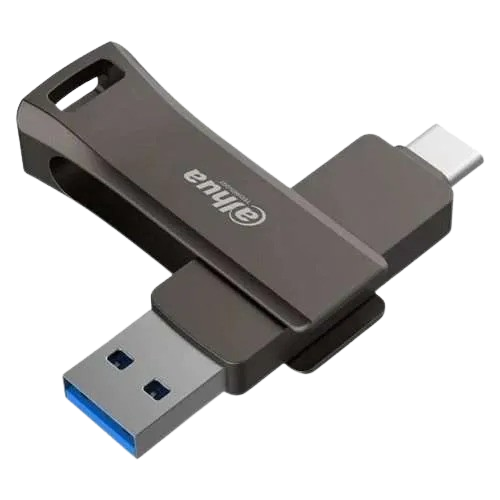In the hyper-digital world, we produce and use a lot of data, pictures, videos, documents, and applications. Hence, a secure and safe storage area for all this data is very important. Whether you are a student, a small business owner, a creative professional, or an enterprise user, choosing the right online storage device is important to handling your digital stuff properly.
In this guest post, we’ll cover everything you need to know to help you choose an online storage device that suits your requirements.
What Is an Online Storage Device?
An online storage device is an information system through which users may remotely upload their data and files to the Internet. Such devices are usually saved on third-party cloud servers. Compared to physical devices for storing information (e.g., external hard drives or USB drives), online storage offers access, expandability, and auto-backup features anywhere.
Why Online Storage Matters
Before diving into how to choose the optimal solution, let us first look at why online storage is becoming increasingly popular:
- Accessibility: Access your files at your convenience, from anywhere, via any internet-enabled device.
- Scalability: Easily increase your storage capacity when your data grows.
- Data Recovery: Online storage often features automatic backup and recovery options if data loss occurs.
- Collaboration: Easily share and co-edit files with others in real time.
- Security: They all provide encryption and other security measures to safeguard your data.
Types of Online Storage Devices
With today’s increasingly digital way of life, storing data securely and effectively is more crucial than ever. Online storage devices provide convenient solutions for individuals and companies to store, access, and back up files remotely. Below is a brief overview of the types available for different digital purposes.
Cloud Storage Services
- Examples: Google Drive, Dropbox, OneDrive.
- Ideal For: Small groups and individuals.
- Pros: Easy to use, integrates well with other programs, and has free versions.
- Cons: Limited data storage on free versions, potential data privacy concerns.
Network Attached Storage (NAS) with Cloud Sync
- Ideal for: Tech users and businesses.
- Pros: Total control of data, hybrid online/offline data storage.
- Cons: Additional initial cost and setup are required.
Enterprise Cloud Storage
- Examples: AWS S3, Microsoft Azure, Google Cloud Storage.
- Ideal For: Large data-needed organizations, enterprises, and developers.
- Pros: Highly scalable, excellent APIs, global infrastructure.
- Cons: It can be expensive and cumbersome.
Backup-Specific Online Storage
- Examples: Backblaze, Carbonite.
- Best Suited For: Automatic and continuous backup.
- Pros: Set-it-and-forget-it, affordable.
- Cons: It is not ideal for collaboration or file sharing.
Factors to Consider When Choosing an Online Storage Device
Choosing the right online storage device involves more than choosing the cheapest one. One needs to evaluate key factors such as security, capacity, and ease of use to figure out whether it will fit one’s individual or business needs. The ones below are the key factors in making a choice.
-
Storage Capacity
How much room will you anticipate needing? Choose a vendor that can readily increase your plan as your needs grow. You’ll want plenty of room for design documents, software compilations, or high-definition video.
-
Speed and Performance
The speed of file download and upload is highly critical. If you will be working with many big files regularly, ensure the vendor has optimized performance.
-
Security Options
Look for products that offer:
- End-to-end encryption.
- Two-factor authentication.
- GDPR or HIPAA compliance (if applicable).
- Role-based team access control.
Security should never be compromised, especially if sensitive business or personal information is going to be stored.
-
User Interface and User Experience
Any next-gen storage technology must always be user-friendly. Ensure the service has a clean and simple dashboard, mobile app support, and easy file retrieval mechanisms.
-
Pricing and Plans
Compare free stealth charges, monthly or yearly fees, and free plans. While some hosts offer little free storage, premium plans vary greatly in terms of storage capacity and features.
-
Collaboration and Sharing Features
If you are in a team configuration or sharing with customers, examine integrated commenting, versioning, and sharing features. They boost productivity and facilitate communication.
-
Support and Reliability
Check if the provider offers 24/7 support, uptime guarantees, and an open Service Level Agreement (SLA). You would hate to lose access to your files due to server downtime.
Top Tips to Get the Most Out of Your Online Storage
Maximizing online storage benefits requires savvy use and management. These are some tips to optimize performance and safeguard your data. Read these:
- Maintain your files in order and organize them regularly to avoid mess.
- Use folders and tags for maximum data organization.
- Automatically back up your crucial files.
- Enable multi-device sync to ensure data consistency across devices.
- Always have a local copy of your most important files for extra security.
The Future of Online Storage Devices
With AI, edge computing, and IoT gaining traction, the future of online storage will be more dynamic. Customers will experience more smart storage options that auto-segregate files into categories, provide recommendations for file actions, and seamlessly interoperate with a broader ecosystem of apps and services.
Hybrid solutions combining local storage and cloud availability (such as Smart NAS solutions) will gain popularity, especially among customers with privacy concerns. Green data centers and environmentally friendly storage will also be of special interest to “green” companies.
Conclusion
Choosing the online storage device requires careful consideration of your current needs, future expansion, and some features that suit your individual or business goals. Whether you’re a solo entrepreneur safeguarding project files or a company handling terabytes of customer data, you have a storage solution.
Dataworld offers a complete range of online storage solutions and network infrastructure trusted by small businesses and enterprises in Kenya and the East African market.
Visit www.dataworld.co.ke to explore their comprehensive range of IT and cloud solutions and find the right online storage device.


